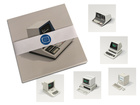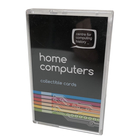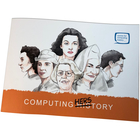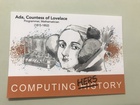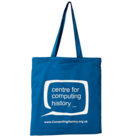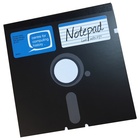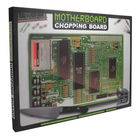Apple II: Apple Fortran Language Reference Manual
| Home > Browse Our Collection > Manuals > Apple II Manuals > Apple II: Apple Fortr ... age Reference Manual |
|
Apple II Fortran Language Reference Manual describes the Apple FORTRAN programming language for the
Apple II and Apple II-plus computers. Apple FORTRAN conforms to the American National Standard FORTRAN subset, also known as ANSI subset FORTRAN 77. Apple FORTRAN contains features which are extensions to the ANSI standard subset. For instance, it incorporates a number of features the full language not included in the standard subset. Apple FORTRAN also has features that are the result of the unique operating environment of the Apple. The ANSI standard subset itself includes most of the important revisions made to the full language over the previous standard, ANSI FORTRAN 66. The purposes of this manual are: * Acquaint you with Apple FORTRAN ' s differences and extensions to standard FORTRAN 77. * Acquaint you with the Apple FORTRAN operating environment on the Apple II and Apple II-plus. FORTRAN uses the Apple Pascal Operating System. * Introduce you to the principal differences between ANSI FORTRAN 77 and ANSI FORTRAN 66, if you are not familiar with this more recent version of FORTRAN. * Provide you with the complete language specification of Apple FORTRAN. The complete Apple FORTRAN documentation includes one other manual: * Apple Language System Installation and Operation Manual To familiarize you with the Pascal Operating System, this FORTRAN manual refers you to "Pascal documentation." These manuals are the Pascal manuals included with your Apple Language System. Chapter 1 is an overview of the different flavours of FORTRAN.
Chapter 2 discusses using FORTRAN in the Pascal Operating System environment. It tells you where to look to find the most important features in the documentation for the Pascal Operating System.
The remainder of the first section of this manual, Chapters 3 through 5, discusses how to organize FORTRAN programs efficiently, the input requirements of the FORTRAN compiler, and the use of the Linker. The next major section of this manual, Chapters 6 through 14, contains the language specifications and description of Apple FORTRAN. It covers details of data types, expressions, statements, I/O considerations, and the format of programs acceptable to the FORTRAN compiler.
The remaining chapters, Chapters 15 and 16, discuss linking FORTRAN to Pascal programs, CALLing assembly language routines from FORTRAN, color graphics techniques, and other special Apple features. The appendices summarize information given elsewhere in the manual and provide other useful tidbits. New Apple Pascal /FORTRAN users should be sure to read Appendix A before attempting to use the system.
All those parts of the operating system which are common to both Pascal and FORTRAN have been put into the documentation for the Pascal Operating System. In order to learn how to create, edit and run FORTRAN programs, you must have a copy of either the Apple Pascal
Reference Manual or the Apple Pascal Operating System Reference Manual. Note that the latter manual is a replacement for the Pascal Operating System portion of the former manual. Appendix A contains a tutorial on how to get started using the program development system, the Editor, Linker and so on. It provides you with all the information you need to run either a single- or a multi- drive system. The Pascal Operating System documentation describes two things: the program development system and the operating system proper. The examples in the Pascal documentation are Pascal programs. This will not pose any problem in learning about the Editor, Filer and Linker because these tools are independent of the programming language used. Platform: Apple II, II Plus with 48Kb RAM Disk 5.25 drive OS: Pascal Operating System System Software (SS:) Programming Language (PL:) FORTRAN Version: 1980
This exhibit has a reference ID of CH1702. Please quote this reference ID in any communication with the Centre for Computing History. |
Click on the Images For Detail
|


